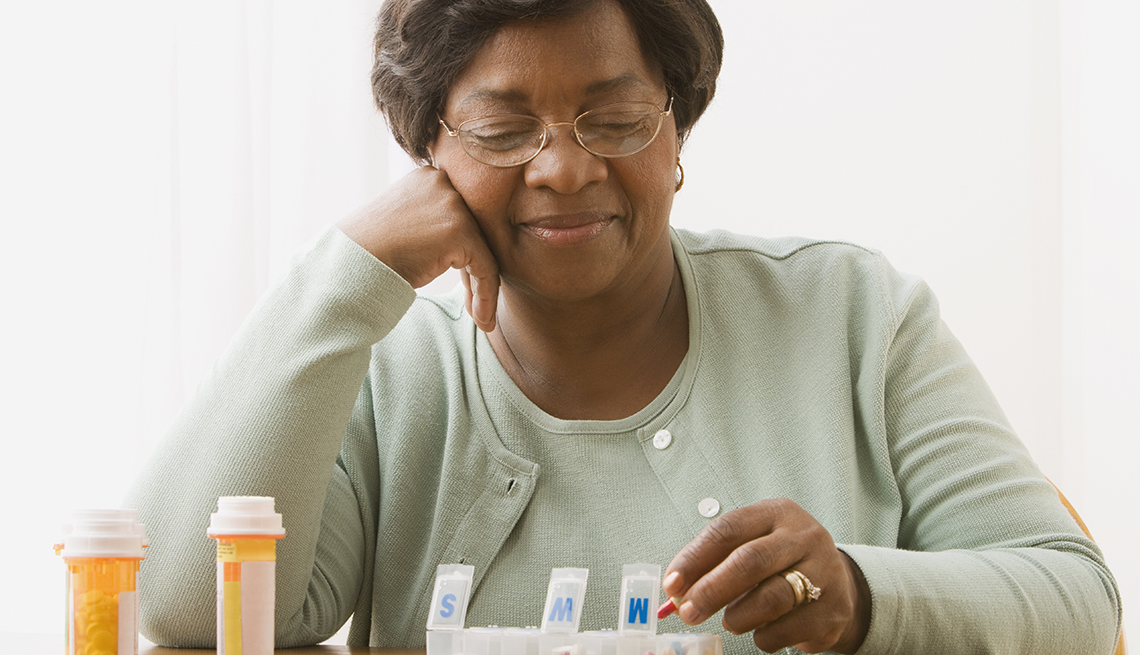
Can you mix the covid vaccine and medications?
- Select a language for the TTS:
- UK English Female
- UK English Male
- US English Female
- US English Male
- Australian Female
- Australian Male
- Language selected: (auto detect) - EN
Play all audios:

SOME MEDICINES MAY DAMPEN VACCINE EFFECTIVENESS As with most rules of medical science, there are some exceptions. If you happen to be taking prescription drugs that do affect your immune
system, the vaccine might not be as effective as it would be if you weren't. So if you have had an organ transplant and are taking immunosuppressant drugs or taking those drugs to treat
an autoimmune disease, or if you're taking certain cancer chemotherapies, the “immunosuppressive drug could decrease the efficacy of the vaccine,” says William Moss, M.D., executive
director of the International Vaccine Access Center at the Johns Hopkins Bloomberg School of Public Health. Same goes for people who are HIV positive and take one or more medications that
affect their immune systems. Even so, Schaffner emphasizes, such medications will continue to work on the conditions you're taking them for — and so will the COVID-19 vaccine.
"Should you still get the vaccines?” asks Schaffner, referring to the currently available COVID-19 vaccines from Pfizer-BioNTech and Moderna. “Absolutely. Now, can we guarantee that you
will have 95 percent protection? No, but you will get some degree of protection. And some is better than nothing." Moss suggests that people think of the COVID vaccines in much the
same way they do their annual flu shot or a shingles or pneumonia vaccine. The COVID vaccine “is a new type of vaccine, but fundamentally, it's just a vaccine. It is like other vaccines
that basically affect our immune system. And there's no reason to have concerns about how that might interact with other medicines." There is one caution that medical experts
agree on: Don't take a pain reliever before you get the vaccine unless advised to do so by your doctor. It could lessen the effectiveness of the COVID-19 shot. That advice, Schaffner
explains, is based on studies that were done years ago on children after they had been vaccinated. While the studies weren't totally conclusive, Schaffner says that out of an excess of
caution, pediatricians tell parents not to pre-medicate children before they get vaccinated, and that concept has been carried over to the COVID-19 vaccine for adults. Pain relievers are
fine to take after being vaccinated to help alleviate any side effects. TOP 10 PRESCRIPTION DRUGS These were the most prescribed medications in the U.S. as of August 2020. The generic names
are followed by brand names in parentheses. None of the drugs would be affected by or affect a COVID-19 vaccine, according to doctors. * ATORVASTATIN (Lipitor), used to treat high
cholesterol * LISINOPRIL (Prinivil, Zestril), used to treat high blood pressure * ALBUTEROL (Accuneb, Ventolin, Proair, Proventil), used to treat and prevent bronchospasm (narrowing of
airways) * LEVOTHYROXINE (Synthroid, Unithroid, Levoxyl, Levo-T, Euthyrox), used to treat thyroid deficiency * AMLODIPINE (Norvasc, Amvaz), used to treat high blood pressure and angina
(chest pain) * GABAPENTIN (Neurontin), used to treat epileptic seizures * OMEPRAZOLE (Prilosec), used to treat gastroesophageal reflux disease (GERD) * METFORMIN (Glucophage), used to treat
type 2 diabetes * LOSARTAN (Cozaar), used to treat high blood pressure * HYDROCODONE/ACETAMINOPHEN (Zolvit, Lorcet, Vicodin, Hycet, Xodol, Norco, Lortab, Maxidone), used to treat severe pain
Source: GoodRx _Dena Bunis covers Medicare, health care, health policy and Congress. She also writes the “Medicare Made Easy” column for the AARP Bulletin. An award-winning journalist,
Bunis spent decades working for metropolitan daily newspapers, including as Washington bureau chief for the _Orange County Register_ and as a health policy and workplace writer for
_Newsday_._ _This story has been updated to reflect new information_
